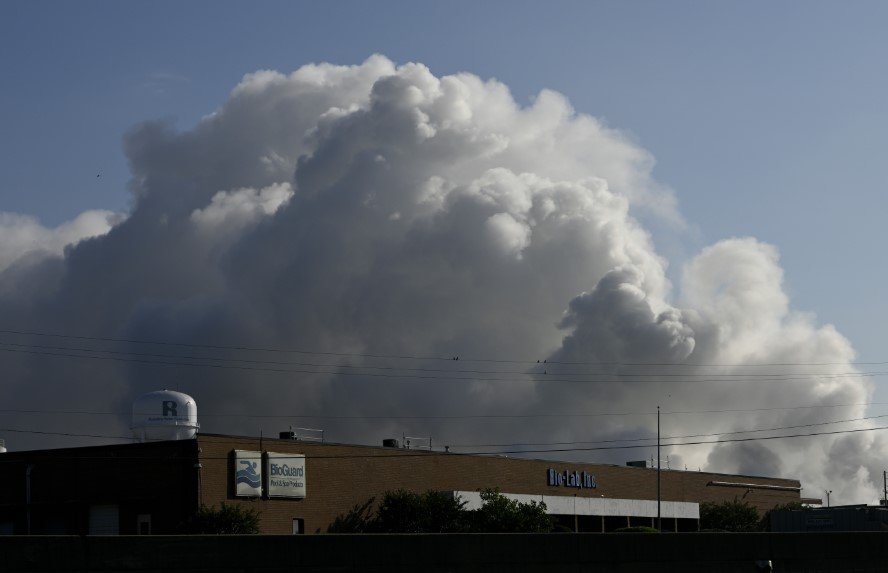BioLab’s permanent closure in Conyers leaves a community demanding answers and fearing what’s next
BioLab is calling it quits on manufacturing operations at its Conyers, Georgia facility. Months after a dangerous chemical fire triggered mass evacuations and rattled an entire county, the plant won’t be making a comeback — but the company’s warehouse? Still up and running.
That’s not sitting well with everyone. Especially not with residents who lived through the black clouds, the sirens, and the anxiety that refuses to fade.
A fire, a crisis, and a long pause that just became permanent
Back on September 29, 2024, something went terribly wrong. A chemical fire ripped through the BioLab plant, sending thick smoke curling into the sky. It wasn’t just any fire — it led to the evacuation of 17,000 people. Another 90,000 were ordered to shelter in place.
Conyers, a city of around 17,000, sat at the epicenter of the chaos. The broader Rockdale County community—63% of whom are Black—was left gasping for clean air, both literally and figuratively.
The blaze forced BioLab to shut down manufacturing immediately. For months, residents waited for news. Would it reopen? Was it safe? Now, eight months later, there’s finally an answer. The company says “considering our future business needs,” they’re pulling the plug on production entirely.
Distribution stays, manufacturing goes — residents left in limbo
In a short Friday afternoon statement, BioLab confirmed the closure of its manufacturing line. But it also noted the company’s distribution center—cleared to operate again as of November 2024—will remain in place, shipping out finished products from other factories.
That detail hit like a gut punch for some.
Cheryl Garcia, a longtime Conyers resident, was blunt: “This is a partial win.” Her voice was filled with both relief and frustration.
“I’m not happy because that means that the chemicals are still there and they can still catch on fire,” she said. “I’m still extremely disappointed and concerned for the health and safety of the citizens of Rockdale County.”

The numbers tell a scary story
The September fire wasn’t a minor incident. Emergency services raced to contain it, and air quality became a fast-moving concern. Schools closed. Businesses shuttered. Panic spread faster than the flames.
Here’s a quick breakdown:
-
17,000 evacuated in the immediate vicinity
-
90,000 ordered to shelter in place
-
10+ square miles affected by smoke and chemical exposure concerns
-
Environmental watchdog groups flagged potential chlorine gas release, a byproduct of the fire
To this day, no full environmental impact report has been publicly released. That silence? It’s deafening.
BioLab has a history — and not a good one
This isn’t BioLab’s first brush with disaster. The Louisiana-based company also had a major fire in Lake Charles after Hurricane Laura in 2020. That event, too, led to massive environmental and safety concerns.
Two disasters in less than five years. Both involving chemicals. Both with large-scale consequences.
At some point, critics argue, this stops looking like bad luck and starts looking like a pattern.
And in Conyers, memories of last fall’s chaos haven’t faded.
One parent, who declined to give her name, said she still keeps an emergency bag in her car. “Just in case,” she muttered.
So what’s really left behind?
While the flames are long gone, what’s left behind isn’t easy to sweep up. BioLab’s exit from manufacturing might be a move to limit liabilities or dodge regulatory scrutiny — no one’s confirming that outright, but folks are speculating.
And what about the chemicals still on site? How are they stored? What’s the plan to ensure safety going forward?
A spokesperson for Rockdale County confirmed the distribution facility is under “routine compliance checks,” but refused to go into detail. The EPA has not issued further public guidance either.
There’s also the unspoken economic impact. The plant provided dozens of jobs. The sudden halt means those positions vanish, and with them, a source of income for local families.
Community calls for oversight and cleanup grow louder
Residents aren’t waiting around for another press release. Local activist groups are organizing town halls. There’s talk of legal action. People want transparency, and more importantly, they want accountability.
“We were left in the dark for too long,” said Rev. Thomas B. Langston, who leads a congregation just two miles from the site. “We want to know what chemicals are still there. We want to know if our kids are safe. We want real answers.”
And while BioLab maintains the site is safe under current operation, that’s a hard sell to a population still breathing in uncertainty.
What happens now?
For now, the smoke has cleared — literally. But metaphorically? Not even close.
The plant sits quiet. No sounds of machines. No hustle from workers. Just the looming presence of a warehouse filled with chemical products in a city still trying to trust again.
